Click on images to enlarge

habit (Photo: Sheldon Navie)
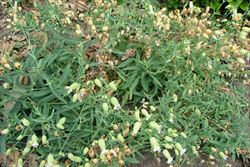
habit (Photo: Sheldon Navie)
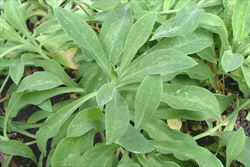
lower leaves (Photo: Sheldon Navie)

stems and upper leaves (Photo: Sheldon Navie)
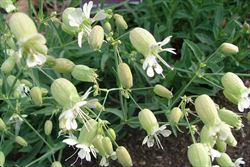
branched flower clusters (Photo: Sheldon Navie)
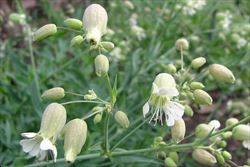
flower buds and flowers with inflated sepals (Photo: Sheldon Navie)
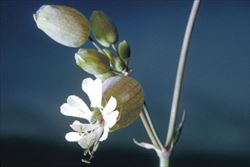
close-up of flower with five deeply two-lobed petals (Photo: Trevor James)
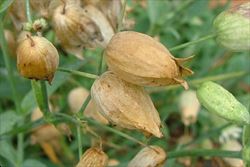
mature fruit enclosed in old sepals (Photo: Sheldon Navie)

close-up of seeds (Photo: Carole Ritchie at USDA PLANTS Database)
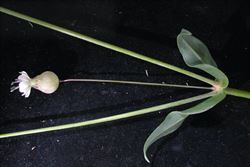
the very similar Silene uniflora subsp. uniflora, with flowers that are often borne singly (Photo: Greg Jordan)
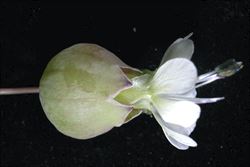
close-up of flower of Silene uniflora subsp. uniflora from side-on (Photo: Greg Jordan)
Scientific Name
Silene vulgaris (Moench) Garcke subsp. vulgaris
Synonyms
Behen vulgaris MoenchCucubalus behen L.Cucubalus inflatus Salisb.Silene cucubalus WibelSilene inflata (Salisb.) Sm.Silene vulgaris (Moench) Garcke
Family
Caryophyllaceae
Common Names
bird's eggs, bladder campion, blue root, bubble-poppy, cobwell, devil's rattlebox, maiden's tears, maidenstears, rattlebox, rattleweed, sea pink, snappery, white bottle, white hen
Origin
Native to northern Africa, the Azores, the Madeira Islands, the Canary Islands, Europe, the middle-east, western Asia, Russia, Mongolia, China and the Indian Sub-continent.
Naturalised Distribution
Widely naturalised, but scattered, in southern Australia (i.e. in some parts of New South Wales, in Victoria and Tasmania, in south-eastern South Australia and in south-western Western Australia). Also present in other parts of South Australia, and sparingly naturalised in south-eastern Queensland and the ACT.
Notes
Bladder campion (Silene vulgaris subsp. vulgaris) is regarded as an environmental weed in Victoria, South Australia and New South Wales. It was also recently listed as a priority environmental weed in at least one Natural Resource Management region.

